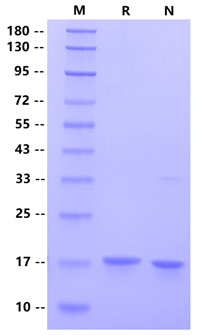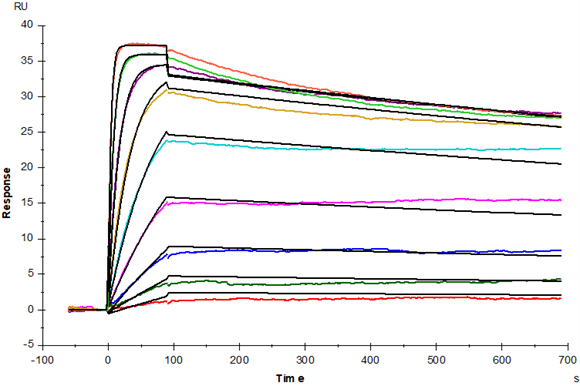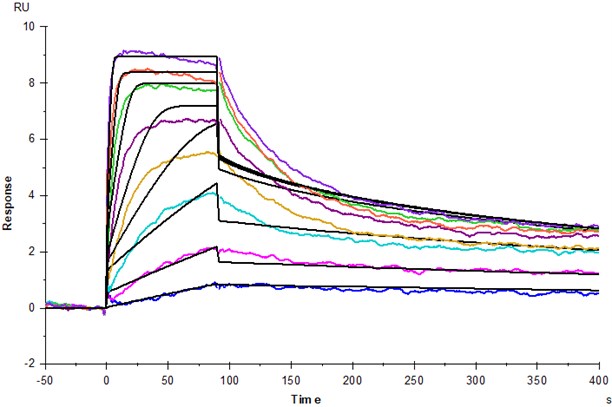



 下载产品说明书
下载产品说明书 用小程序,查商品更便捷
用小程序,查商品更便捷



 收藏
收藏
 对比
对比 咨询
咨询17kDa (Reducing)
17kDa (Reducing)
>95% by SDS-PAGE
>95% by SDS-PAGE


17kDa (Reducing)

>95% by SDS-PAGE








Tumor Necrosis Factor alpha (TNF-α), is an inflammatory cytokine produced by macrophages/monocytes during acute inflammation and is responsible for a diverse range of signaling events within cells, leading to necrosis or apoptosis. TNF alpha exerts many of its effects by binding to either a 55 kDa cell membrane receptor termed. TNFα activates signals through two receptors, TNF-R1, which is expressed on most cell types, and TNF-R2, which is expressed mainly on immune cells. TNFα can have many functions including, to stimulate of phagocytosis in macrophages, to chemoattract neutrophils, to increase insulin resistance and to induce fever.

Reconstitute at 0.1-1mg/mL according to the size in ultrapure water after rapid centrifugation.

· 12 months from date of receipt, lyophilized powder stored at -20 to -80℃.
· 3 months, -20 to -80℃ under sterile conditions after reconstitution.
· 1 week, 2 to 8℃ under sterile conditions after reconstitution.
· Please avoid repeated freeze-thaw cycles.
参考图片
Measured in a cytotoxicity assay using L-929 mouse fibrosarcoma cells in the presence of the metabolic inhibitor actinomycin D, EC50 < 30pg/ml.
1μg(N: non-reducing condition, R: reducing condition).
Anti-His antibody Immobilized on CM5 Chip captured TNFR-1/CD120a His Tag, Human (Cat. No. UA040028), can bind TNF-α, Human (Cat. No. UA040018) with an affinity constant of 0.23 nM as determined in SPR assay.
Anti-His antibody Immobilized on CM5 Chip captured TNFR-2/CD120b His Tag, Human (Cat. No. UA010138), can bind TNF-α, Human (Cat. No. UA040018) with an affinity constant of 0.71 nM as determined in SPR assay.








 危险品化学品经营许可证(不带存储) 许可证编号:沪(杨)应急管危经许[2022]202944(QY)
危险品化学品经营许可证(不带存储) 许可证编号:沪(杨)应急管危经许[2022]202944(QY)  营业执照(三证合一)
营业执照(三证合一)